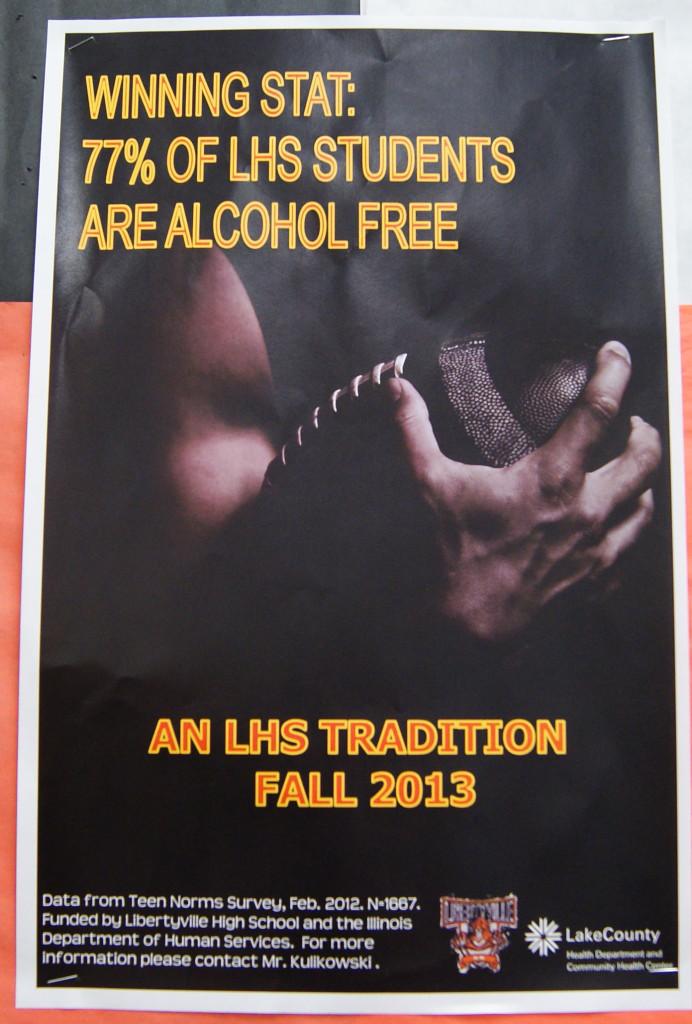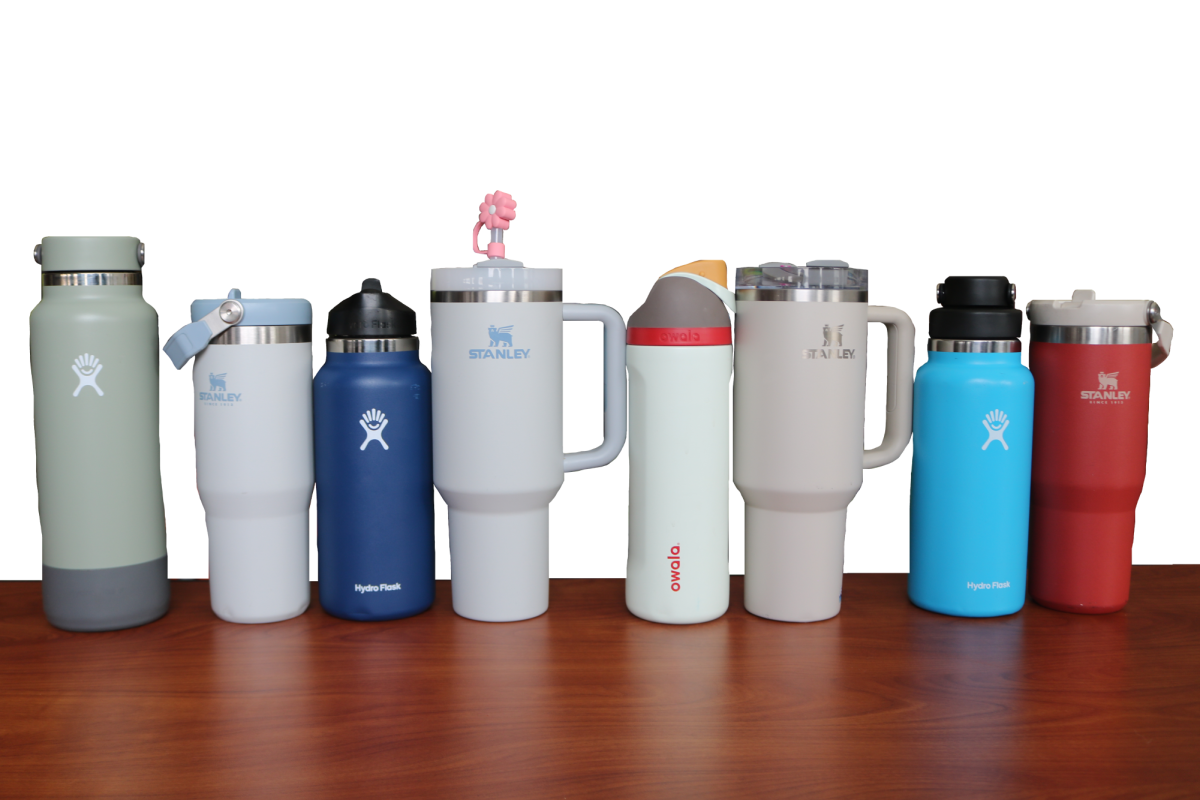Did you know that 77% of LHS students are alcohol free?
DOI doesn’t buy it, either. As a staff, it was unanimously expressed that the alcohol statistic posters within LHS are not only inaccurate, but also have no effect on decisions that students make as a whole.
The survey where the statistics are derived from is produced and revised by Northern Illinois University every two years, although adaptations can be made by individual schools, as well. In the area, the survey is fairly common. Just to name a few schools, Vernon Hills, Zion-Benton, and Schaumburg participate in the study, according to Student Assistance Program Coordinator Mr. Damian Kulikowski.
So why even distribute the survey? “When students’ misperceptions are corrected so they learn that the majority of their friends don’t use, they then are less likely to engage in use,” said Mr. Kulikowski.
DOI expressed that the 77% isn’t such a winning stat, anyway, as was said in the first poster released this year (“A Winning Tradition”). Although this is a fairly strong number compared to other schools, according to Mr. Kulikowski, is this something to be proud of, or something that could even influence a student’s decision?
Mr. Kulikowski, in fact, stressed the criticisms and disbelief he had been told by
students. But in response to the survey’s criticisms, Mr. Kulikowski emphasized the survey’s accuracy, due to its format.
The survey, which first took place two years ago at Libertyville, had “questions balanced to determine consistency,” said Mr. Kulikowski. In other words, similar, contradicting questions were given throughout the test to deter irrelevant, or non-serious surveys.
The next upcoming survey, which will be on February 27, 2014, isn’t set to have any specific changes, but LHS aims to make it shorter, according to Mr. Kulikowski.
LHS recognizes the survey’s skeptical feedback, too, but those involved with the test like Mr. Kulikowski do their best to keep an open mind with the statistics they might find. Mr. Kulikowski stated that LHS is not trying to catch students or impose its beliefs on them, but simply stating the facts as they know it — that most LHS students are alcohol free. He went on to explain that the main purpose of the project is “to raise awareness of what our kids are doing. [The posters] validate the decisions they’re already doing,” said Mr. Kulikowski. He stressed that if the numbers don’t fit what’s really going on, then why not be honest?
A main component of the survey is its anonymous aspect. Not only is the survey not required to be taken by a student, but names are not asked, as confidentiality is stressed to ensure honest answers. The test two years ago was simply a scantron with multiple choice answer options without a fill in for a name.
So, although the statistics may look a little fishy to DOI and students as the numbers seem too good to be true, it’s a valid point — numbers are numbers, which brings up the argument of the survey format, once more.
For those of you who took the survey, you’ll remember that the phrase “within thirty days” was practically stuck in your head by the end of the period. So why was that the theme? Is information being manipulated here?
Actually, test officials look to get a gauge of how often students drink, rather than just asking if students had drank at all or in the last year. Asking within thirty days, or a month, gives the test makers a better idea of what’s going on, according to Kulikowski.
Mr. Kulikowski, understood that the month of February was specifically selected for the quiz to be taken, as well as to be tested on for timing reasons.
Those in charge of the test at LHS realized that there were potential variables as far as when students might be inclined to drink more (i.e. holidays, breaks, etc).
So, it was decided to keep the information true to the month of February, as there are minimal days in which students are more inclined to drink.
Although such information clears up the air regarding some of the misconceptions with the survey, Drops of Ink feels that the survey shouldn’t be given at all.
As stated, the posters have little to no effect on decisions students make, which happens to be the purpose of the posters. If students are not being honest with the survey, the numbers mean nothing.













